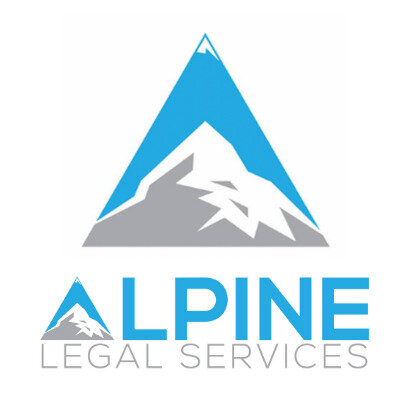Best Conveyancing Lawyers in Langley
Share your needs with us, get contacted by law firms.
Free. Takes 2 min.
Free Guide to Hiring a Real Estate Lawyer
List of the best lawyers in Langley, Canada
About Conveyancing Law in Langley, Canada
Conveyancing refers to the legal process of transferring ownership of real estate from one party to another. In Langley, British Columbia, conveyancing is an essential step in every property transaction, whether buying, selling, or refinancing a home or commercial property. The process involves preparing and reviewing legal documents, safeguarding the interests of both parties, ensuring that all contractual obligations are met, and registering the property transfer with the provincial land title office. Professional legal guidance helps ensure that the transfer is legally valid, secure, and complies with all local laws and regulations.
Why You May Need a Lawyer
Conveyancing can be a complex and stressful process. There are several situations in which you may require the assistance of a lawyer:
- Buying or selling residential or commercial property
- Refinancing your mortgage or transferring interests between family members
- Ensuring that the title is clear of unexpected liens or charges
- Preparing or reviewing the contract of purchase and sale
- Managing disputes related to property boundaries or co-ownership
- Dealing with complex legal issues such as strata properties or leaseholds
- Ensuring compliance with all legal and tax obligations
A lawyer acts to protect your interests, provide clear legal advice, and avoid costly mistakes or delays during the conveyancing process.
Local Laws Overview
Conveyancing in Langley is governed by laws and regulations specific to British Columbia. Key elements include:
- Property Transfer Tax Act: This provincial law imposes a tax on the transfer of real estate. There are exemptions available depending on the purchaser and circumstances.
- Land Title Act: Governs the registration of property transactions and the recording of ownership and interests in property at the Land Title Office.
- Real Estate Services Act: Establishes rules for real estate licensees and governs aspects of property sales and representation.
- Local Municipal Bylaws: City of Langley and Township of Langley both have their own bylaws which may affect zoning, development, and property use.
A lawyer familiar with local regulations can help ensure that your transaction proceeds smoothly and in compliance with all relevant legal requirements.
Frequently Asked Questions
What is the role of a lawyer in conveyancing?
A lawyer ensures all documents are accurate, completes due diligence on the property, manages the transfer of funds, registers the new ownership, and provides independent legal advice to protect your interests.
Can I handle the conveyancing process on my own?
While it is possible to complete some stages yourself, professional legal assistance is strongly recommended to avoid costly mistakes, ensure compliance with the law, and foresee potential issues in the transaction.
How long does the conveyancing process usually take?
Typically, a standard residential conveyance in Langley takes between one and four weeks, depending on the complexity of the transaction and responsiveness of all parties involved.
What is the Property Transfer Tax, and who pays it?
The Property Transfer Tax is paid by the buyer whenever a property changes hands. The amount depends on the purchase price and certain exemptions may apply, such as for first-time home buyers.
What are common fees associated with conveyancing?
Fees include legal or notary fees, Property Transfer Tax, registration fees at the Land Title Office, and possibly disbursements for title searches, courier fees, and document preparation.
What is a title search and why is it important?
A title search confirms the seller's legal ownership and identifies any registered charges, liens, or encumbrances that may affect your rights as the new owner. It is a crucial step in the conveyancing process.
Do both the buyer and seller need separate lawyers?
It is advisable, though not always required. Lawyers cannot represent both sides in a transaction where there is any conflict of interest, and having separate legal representation protects both parties.
What happens on the completion date?
On the completion date, legal ownership of the property transfers from the seller to the buyer, funds are exchanged, and the transaction is registered with the Land Title Office.
Are there special considerations for strata or leasehold properties?
Yes, strata properties involve additional documents like Form F and Form B, while leasehold interests have special registration and reviewing requirements. An experienced conveyancing lawyer can help navigate these complexities.
How can I ensure my transaction complies with local municipality requirements?
Your lawyer will check for compliance with zoning bylaws, outstanding permits, unpaid utility charges, or development levies that could affect your property. Legal review helps avoid future disputes or fines.
Additional Resources
The following resources may be helpful for people seeking further information or assistance regarding conveyancing in Langley:
- Government of British Columbia - Land Title and Survey Authority
- BC Ministry of Finance - Property Transfer Tax information
- Law Society of British Columbia - Public resources and lawyer directory
- Real Estate Council of British Columbia
- City of Langley and Township of Langley municipal offices for local bylaws and property information
Consulting these agencies, along with a qualified lawyer, ensures you are prepared for all legal requirements in your property transaction.
Next Steps
If you are planning a real estate transaction in Langley, it is advisable to consult a lawyer who specializes in conveyancing as soon as possible. Start by gathering all relevant documents such as your contract of purchase and sale, property assessments, and identification. Research local legal professionals with experience in Langley property transactions and schedule an initial consultation to discuss your needs. During the meeting, ask about legal fees, the process timeline, and any anticipated challenges. Taking these steps helps ensure your property transaction is legally sound and your interests are fully protected.
Lawzana helps you find the best lawyers and law firms in Langley through a curated and pre-screened list of qualified legal professionals. Our platform offers rankings and detailed profiles of attorneys and law firms, allowing you to compare based on practice areas, including Conveyancing, experience, and client feedback.
Each profile includes a description of the firm's areas of practice, client reviews, team members and partners, year of establishment, spoken languages, office locations, contact information, social media presence, and any published articles or resources. Most firms on our platform speak English and are experienced in both local and international legal matters.
Get a quote from top-rated law firms in Langley, Canada — quickly, securely, and without unnecessary hassle.
Disclaimer:
The information provided on this page is for general informational purposes only and does not constitute legal advice. While we strive to ensure the accuracy and relevance of the content, legal information may change over time, and interpretations of the law can vary. You should always consult with a qualified legal professional for advice specific to your situation.
We disclaim all liability for actions taken or not taken based on the content of this page. If you believe any information is incorrect or outdated, please contact us, and we will review and update it where appropriate.










